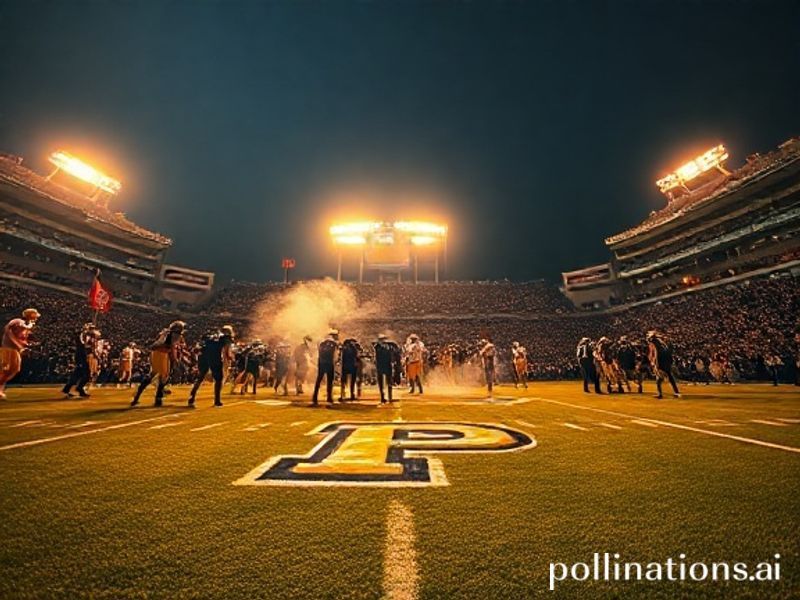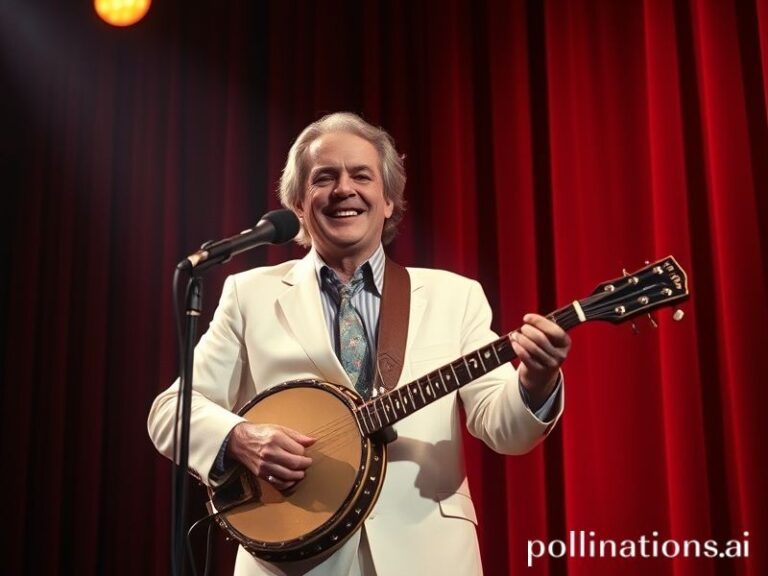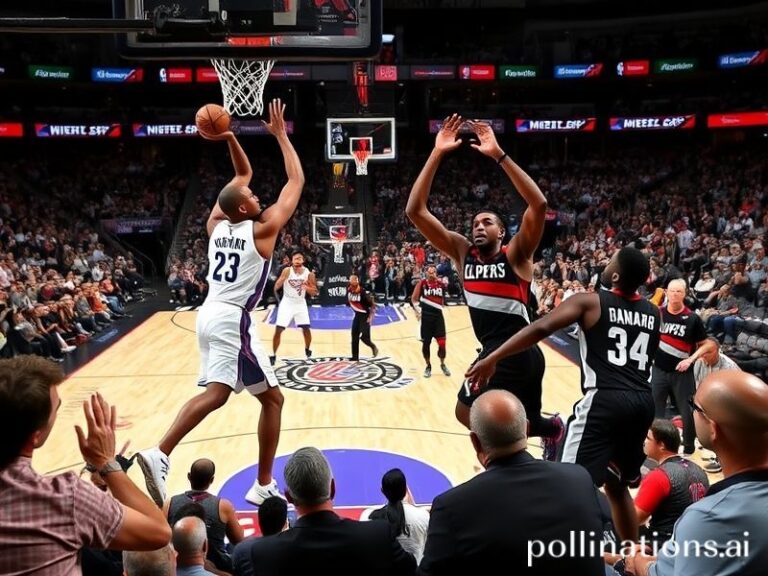Purdue Football’s Global Coup: How Indiana Corn Became the World’s Cheapest Soft-Power Weapon
The Boilermakers Abroad: How Purdue Football Became the World’s Most Improbable Soft-Power Asset
By the time the Purdue “All-American” Marching Band struck up its halftime rendition of “The William Tell Overture” in Dublin last August, half the spectators were wondering why the corn-fed brass section had smuggled a sousaphone onto sacred Irish soil, and the other half were Googling “What exactly is a boilermaker?” Somewhere between the tenth Guinness and the ninth false start, a quiet truth slid into the damp Liffey air: Purdue University—population 50,000, endowment smaller than Elon Musk’s annual tax write-off—had managed to export Midwestern earnestness to a continent that perfected existential despair. If soft power is the art of making foreigners care about something they never knew they needed, then Purdue football is America’s most accidental diplomatic weapon since the hamburger.
Let us zoom out, mercifully, from the 40-yard line. In a year when Europe is rationing kilowatts like post-war cigarettes and Asia is buying Russian oil with the enthusiasm of teenagers sneaking vodka in a dorm bathroom, the spectacle of 22 padded Americans colliding over an oblong ball looks—well—quaint. Yet quaint travels. NBC shipped the Dublin game to 146 countries, from Fiji to Finland, where insomniac viewers discovered that college kids in gold helmets will risk chronic traumatic encephalopathy for a scholarship and a Snickers. Call it cultural imperialism with a marching-band soundtrack; call it the last export that doesn’t require a semiconductor. Either way, Purdue is suddenly the most visible slice of Americana not currently under congressional investigation.
The global implications are deliciously absurd. In Lagos, a startup founder live-tweeted the game between frantic pitches to venture capitalists, noting that Purdue’s offensive line “communicates better than my WhatsApp group.” In Seoul, K-pop trainees scheduled dance breaks around third-down conversions, claiming the Boilermakers’ option offense provided “excellent cardio inspiration.” And somewhere in the bowels of the Kremlin, a mid-level apparatchik is drafting a memo titled “Could Marching Band Tactics Be Adapted for Winter Battlefield Morale?” (Answer: yes, but only if you replace trombones with balalaikas.)
Back in West Lafayette, Indiana—population: corn, soy, and 8,000 caffeine-dependent engineers—the football program is less a juggernaut than a lab experiment. The university’s aeronautics department literally builds spacecraft; the football team occasionally achieves liftoff. Yet the mismatch is the message. Purdue’s brand is nerd muscle: students who can calculate orbital trajectories by day and pancake linebackers by night. It’s the kind of cognitive dissonance that plays surprisingly well abroad, where “American college” conjures either Animal House or Silicon Valley, rarely both at once. Think of it as a Trojan horse wearing safety goggles.
The cynical read—because cynicism is the last renewable resource—is that Purdue’s international barnstorming is simply a hedge against demographic collapse. American universities are staring down an enrollment cliff as domestic birth rates plummet faster than crypto in a bear market. Solution: convince overseas parents that gridiron glory and aerospace engineering share a campus quad. If that means staging a game in Dublin’s Croke Park, where locals still whisper about British atrocities, then slap a shamrock on the helmet and call it reconciliation. The Irish, ever polite, graciously ignored the irony of importing American pageantry on the anniversary of the Civil War.
Still, one must admire the calculus. While the State Department burns through billions trying to make “democracy” trend on TikTok, Purdue spent the cost of a single F-35 to beam wholesome spectacle into living rooms from Cork to Kolkata. The university’s president calls it “global engagement”; the rest of us might call it the cheapest propaganda since Radio Free Europe played jazz. Either way, the Boilermakers are undefeated in soft power—no small feat for a team whose conference record is, charitably, mixed.
As the final whistle blew in Dublin and the band formed a shamrock on the field, a lone bagpiper on Grafton Street launched into “America the Beautiful.” Somewhere, Francis Scott Key blinked in confusion, then shrugged. The world keeps shrinking; the games grow larger. And if a middling Midwestern squad can turn existential dread into tailgate joy, perhaps we’ve stumbled onto the only export that doesn’t require a cargo ship stuck in Suez. In the end, Purdue football teaches one universal lesson: if you can’t fix the planet, you might as well march across it in gold helmets, playing slightly off-key brass for anyone willing to watch. The planet, tipsy and confused, will probably applaud.







